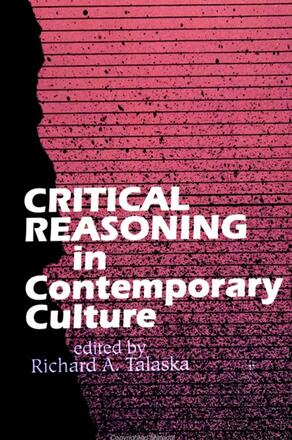
Critical Reasoning in Contemporary Culture
Alternative formats available from:
Description
Here we have, for the first time in a single volume, diverse perspectives on the meaning, conditions, and goals of critical reasoning in contemporary culture. Part One emphasizes critical reasoning and education, engaging the debate over the connection between critical reasoning skills and the learning of the content.
Part Two offers analyses of the theoretical, methodological, and historical debates concerning critical reasoning abilities. The authors represent a variety of disciplines and theoretical approaches which lend the book valuable intellectual pluralism.
The book evaluates other aspects of critical thinking such as creativity, insight, questioning, learning, practical thought, interpretation, intellectual prejudice, and the historical and temporary aspects of thought.
Richard A. Talaska is Associate Professor of Philosophy at Xavier University in Cincinnati.